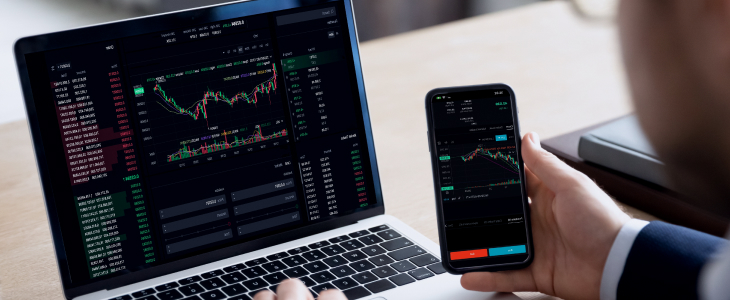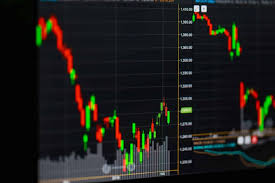
How to Successfully Navigate the Forex Market
Forex trading, sometimes referred to as currency trading, involves buying and selling currencies in the foreign exchange market. This decentralized global market determines the exchange rates of various currencies. If you’re interested in diving into this lucrative arena, understanding the basics is crucial. In this article, we’ll explore how to do Forex trading effectively, including the necessary tools, strategies, and tips to achieve success. For more resources and information, you can visit how do you do forex trading webglobaltrading.com.
Understanding the Forex Market
The Forex market is the largest financial market in the world, with a daily trading volume exceeding $6 trillion. Unlike traditional stock markets, the Forex market operates 24 hours a day, allowing traders from different time zones to engage in trading activities at any time. The market deals in currency pairs, which represent the value of one currency against another. For example, in the pair EUR/USD, the Euro is the base currency, while the US Dollar is the quote currency.
Currency pairs are classified into three categories: major pairs, minor pairs, and exotic pairs. Major pairs consist of the most traded currencies, often including USD, EUR, JPY, and GBP. Minor pairs exclude the USD and involve other major currencies. Exotic pairs combine major currencies with less commonly traded currencies from emerging markets.
Getting Started with Forex Trading
Before you can start trading in the Forex market, you’ll need to follow several foundational steps:
- Educate Yourself: Gain a good understanding of Forex trading principles. Numerous online resources, courses, and eBooks can help you comprehend market mechanics, trading strategies, and terminology.
- Select a Reliable Forex Broker: A broker acts as the intermediary between you and the Forex market. Look for brokers that are regulated by reputable financial authorities, offer competitive spreads, and have a user-friendly trading platform.
- Open a Trading Account: Once you’ve chosen a broker, you need to create a trading account. Some brokers offer demo accounts that allow you to practice trading without the risk of losing real money.
- Fund Your Account: After opening your account, you will need to deposit funds. Brokers typically offer various payment options, including credit cards, bank transfers, and electronic wallets.
- Use a Trading Platform: Familiarize yourself with the trading platform provided by your broker. It should be user-friendly and equipped with necessary tools for analysis and executing trades.

Developing a Trading Strategy
Successful Forex trading isn’t just about guessing price movements; it requires a well-thought-out strategy. Here are various strategies that traders often use:
- Scalping: This involves making numerous trades over short time frames to capture small price movements.
- Day Trading: Traders buy and sell currencies within a single trading day, closing all positions before the market closes to avoid overnight risk.
- Swing Trading: This strategy involves holding onto trades for several days or weeks to benefit from expected price movements.
- Position Trading: Here, traders hold onto positions for months or even years, based on long-term market trends.
Your trading strategy should include entry and exit points, risk management rules, and criteria for selecting trades. Utilizing technical analysis, fundamental analysis, or a combination of both can enhance your strategy.
Risk Management in Forex Trading
Forex trading involves significant risks, and effective risk management is crucial. Here are some strategies to help mitigate risk:
- Use Stop-Loss Orders: A stop-loss order limits potential losses by automatically closing a trade when the price reaches a predetermined level.
- Limit Leverage: While leverage can amplify profits, it also increases potential losses. Use leverage judiciously to maintain control over your capital.
- Diversify Your Portfolio: Avoid putting all your funds into a single trade. Diversifying across various currency pairs can help minimize risk.
- Stay Informed: Economic news, geopolitical events, and market sentiment can significantly impact currency prices. Staying updated is vital for informed decision-making.
Analyzing the Market

Market analysis is a critical component of a successful trading strategy. There are two primary types of analysis in Forex trading:
Technical Analysis
Technical analysis involves studying historical price data and chart patterns to predict future price movements. Traders use indicators like moving averages, Relative Strength Index (RSI), and Bollinger Bands to inform their decisions.
Fundamental Analysis
Fundamental analysis focuses on economic factors that influence currency values, such as interest rates, inflation, and employment data. Traders examine economic indicators released by governments and central banks to assess market sentiment.
Using a Trading Journal
Keeping a trading journal can be incredibly beneficial as you navigate the Forex market. Document your trades, strategies, outcomes, and emotional responses to various situations. This practice allows you to analyze your performance, identify patterns, and refine your strategies over time.
Conclusion
Entering the Forex market can be a rewarding yet challenging endeavor. By understanding the fundamentals of Forex trading, developing a solid strategy, managing risks, and continuously educating yourself, you can increase your chances of success. Remember that Forex trading requires patience and discipline, so be prepared for the learning process ahead. With dedication, you can navigate the world of Forex trading and potentially achieve your financial goals.